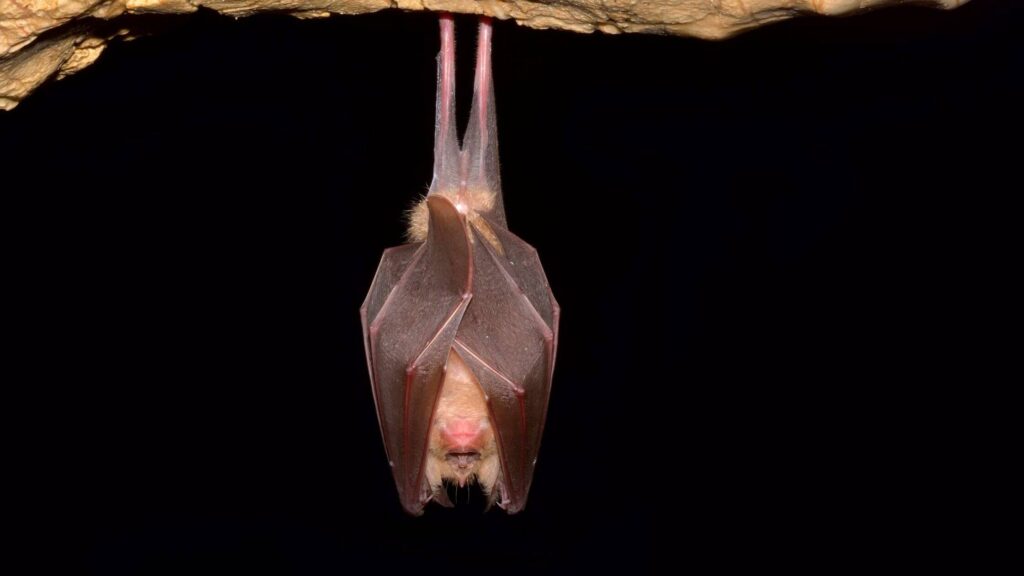Hibernation Is The Key Of Anti-Aging Secret of Bats
Nikki Attkisson | Last Updated : August 12, 2022Bats are among the world’s smallest mammals, but they have long been associated with age and wisdom in cultures around the globe. But now it turns out that the secret to living to be over one hundred years old may be hibernation.
Bats spend up to nine months of the year in hibernation, and some even sleep through the winter.
A new study conducted by researchers at Brown University was able to show that hibernation slows down the aging process in bats by as much as forty percent, compared to bats that don’t hibernate regularly.
What Is Hibernation?
Most people think of hibernation as a state of deep sleep that animals enter to get through the winter. But hibernation is much more than that. It’s a state of lowered metabolism and body temperature that allows animals to survive on very little food.

Hibernating bats are able to go from flying around, finding their own food, mating, and being social during summer months, to being completely dormant during the winter. During this time they only eat enough calories to support their heart rate and maintain their bodily functions.
How does hibernation delay aging?
It’s a common misconception that bats are rodents. In fact, they’re more closely related to primates like humans. And like humans, bats are susceptible to aging. But there is one big difference between the two: bats can hibernate.
They slow their biological aging by going into a deep sleep for up to six months at a time. With all this extra time on their hands, it doesn’t seem so surprising that scientists estimate bats live about three times as long as similar sized mammals.
How do bats cope with hibernating for so long?
Bats are able to hibernate for long periods of time due to their unique physiology. Their bodies are able to withstand the cold temperatures and they are able to slow their metabolism down significantly.
it allows them to save energy and sustain oneself on very little food. In fact, some bats have been observed living up to ten years after emerging from a winter’s hibernation.
For most other mammals, such an extended period of inactivity would result in the death from lack of food or from illness due to immune system dysfunction. However, this is not true for bats. These creatures experience no ill effects during the hibernation cycle because they do not store fat and have a low body temperature (around 3 degrees Celsius).
There is also evidence that the bat’s immune system is active while it sleeps; this prevents infections that might be deadly when other animals are inactive.
More From Powdersville Post :
The US Is Offering Technology To Other Countries To Combat Covid
Austin: Bats Can Acquire COVID-19, But Do They Transmit It, Study Reveals!
Why are people studying bat hibernation?
There are several reasons why scientists are interested in studying bat hibernation. For one, bats are able to hibernate for long periods of time—up to six months! This is impressive because it means that their bodies are able to slow down the aging process.
Additionally, bats have a unique ability to enter into a state of torpor—a deep sleep that helps them conserve energy. Torpor is different from regular sleep because the body’s temperature and metabolism decrease significantly.
Finally, bats may offer clues about how to treat human conditions such as stroke and Alzheimer’s disease.
What questions remain about bat hibernation?
Although we know that hibernation helps bats live longer lives, there are still many questions about this process that remain unanswered.
For example, how does hibernation actually slow the aging process? And what other benefits does it provide for bats? Additionally, scientists are still trying to figure out why some bats choose to hibernate while others do not.
One hypothesis is that those who don’t hibernate have different needs than those who do, such as more time spent flying or searching for food during the warmer months. With all these unknowns, it’s clear that more research is needed!
Reference :
National Park Service (1916) : Hibernate or Migrate( Available in online)https://www.nps.gov/subjects/bats/hibernate-or-migrate.htm#:~:text=Hibernation
Phys org (n.d) : Hibernation slows biological aging in bats(Available in online)https://phys.org/news/2022-08-hibernation-biological-aging.html
With over 15 years as a practicing journalist, Nikki Attkisson found herself at Powdersville Post now after working at several other publications. She is an award-winning journalist with an entrepreneurial spirit and worked as a journalist covering technology, innovation, environmental issues, politics, health etc. Nikki Attkisson has also worked on product development, content strategy, and editorial management for numerous media companies. She began her career at local news stations and worked as a reporter in national newspapers.
